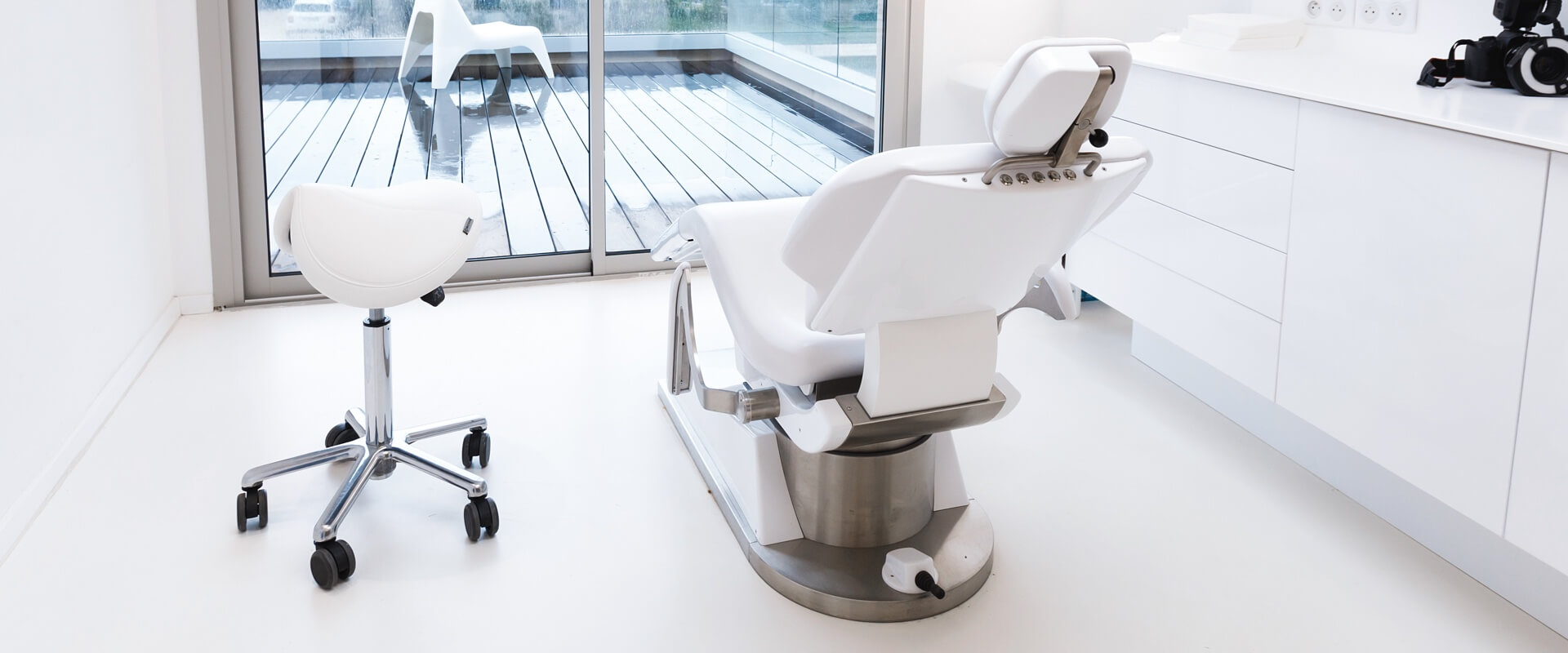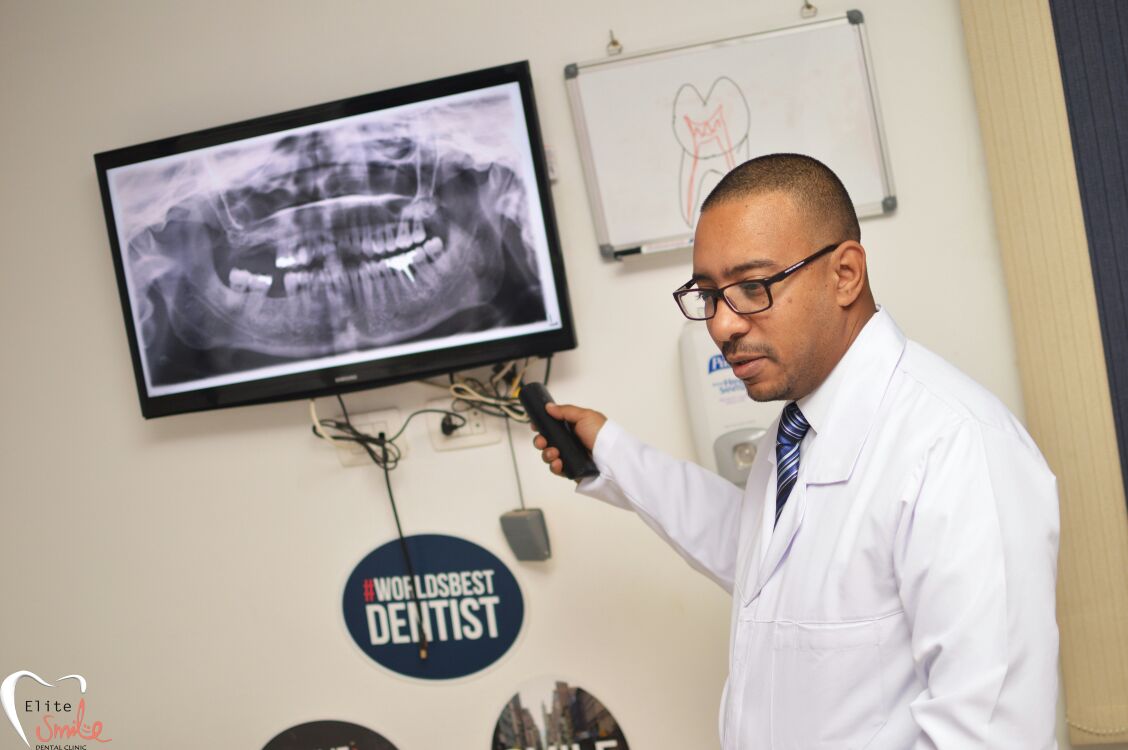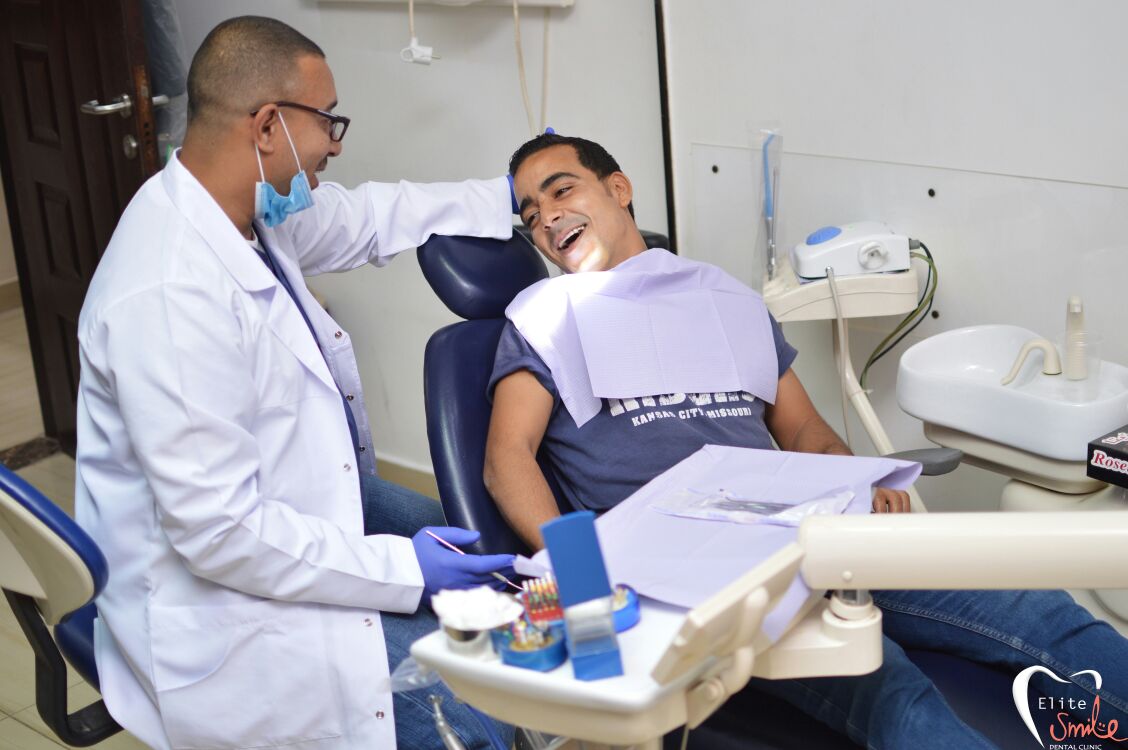Let us brighten
your smile!
We are commited to provide you with the highest quality of personalized dental care in an efficient & professional manner.
Opening Hours
Sunday & Monday:5:00pm - 10:00pm
Saturday & Tuesday:1:00pm - 10:00pm
Wendesday & Thursday:1:00pm - 10:00pm
Choose Our Clinic, Choose The Best Care For Yourself and Your Family

Dr. Ahmed M.Attya
Head Dentist
Welcome To Elite Smile
We appreciate the opportunity to provide you and your family with complete & comfortable dental care.
Our mission
Commited to provide you with the highest quality of personalized dental care in an efficient & professional manner.
Our objectives as dental professionals is to serve you and make each visit you have a very positive experience.
Your First visit to our office
Your dental health is our top priority. Your first visit to our office will include through medical and dental histories, a comprehensiveoral examination, and a personal consultation with Dr. Ahmed M.Atteya.
During this visit, we will also take any X-rays needed for your examination. We view your first visit as a chance for us to get to know each other. After your examination, we will discuss our findings and treatment recommendations with you. You can also discuss any financial arrangements.
Our Values
Sterilization
Dental clinics have been a focus of attention as dental instruments are possible agents for pathogenic transmission from patient to patient, from patient to doctor and vice versa. With the increasing risk of cross infections by Hepatitis B and HIV viruses, the dental facilities are bound to observe the same stringent rules in sterilization of instruments, and disinfection/maintenance of the operatories. That is the reason why we have equipped our center with some of the best methods to maintain sterilization & disinfection.
Quality
Our staff is made up of qualified professionals who work together as a team to bring you the highest quality treatment in a warm and caring atmosphere.

We Promise an Excellent Dental Care and Provide These Services
Have you ever wondered why the American Dental Association and your dentist recommend you come back every six months? It’s because regular dental visits are essential for the maintenance of healthy teeth and gums.And in between those examinations, it’s important that you work to keep your teeth and gums clean and healthy. If you need additional help, your dentist may even suggest more frequent visits.
Is a treatment used to repair and save a tooth that is badly decayed or becomes infected. During a root canal procedure, the nerve and pulp are removedand the inside of the tooth is cleaned and sealed. Without treatment,the tissue surrounding the tooth will become infected and abscessesmay form. "Root canal" Is the term used to describe the natural cavity within the centre of the tooth. The pulp or pulp chamber is the soft area within the root canal. The tooth's nerve lies within the root canal. A tooth's nerve is not vitally important to a tooth's health and function after the tooth has emerged through the gums. Its only function is sensory, to provide the sensation of hot or cold. The presence or absence of a nervewill not affect the day-to-day functioning of the tooth.
The Oral and Maxillofacial Surgery Clinic treats diseases, injuries,tumors, and deformities of the face and jaws that may require surgeryor tooth extraction. We provide consultative, diagnostic, and therapeutic services to patients with problems of the oral cavity, maxillofacial region, andhead & neck to provide excellent patient care.
"Impacted" wisdom teeth
In dental terminology, an "impacted" tooth refers to a tooth that has failed to fully emergy into its expected position.
This failure to erupt properly might occur because there is not enough room in the person`s jaw to accommodate the tooth, the tooth`s eruption path is obstructed by other teeth or because the angulations of the tooth is improper.
Is the branch of dentistry that corrects teeth and jaws that are positioned improperly. Crooked teeth and teeth that do not fit together correctly are harder to keep clean, are at risk of being lost early due to tooth decay and periodontal disease, and cause extra stress on the chewing muscles that can lead to headaches, TMJ syndrome and neck, shoulder and back pain. Teeth that are crooked or not in the right place can also detract from one's appearance. The benefits of orthodontic treatment include a healthier mouth, a more pleasing appearance, and teeth that are more likely to last a lifetime.
Clear Orthodontics Aligners
Clear orthodontic aligners can straighten a dental patient’s teeth without the wires and brackets of traditional braces. The aligners consist of a sequence of clear, removable trays that fit over the teeth to straighten them. Each tray must be worn by the patient for a specified amount of time—usually around 20 hours a day for two weeks--before the patient can progress to the next tray. In most situations, the aligners can straighten teeth in anywhere from six to 18 months.
Clear orthodontic aligners are suitable for patients with mild or moderate crowding, or minor spacing issues. They may not be appropriate for patients with severe crowding or spacing. While the aligners can correct a mild malocclusion, patients with severe underbites, overbites or crossbites may require more advanced orthodontic treatment.
Unlike traditional braces, the trays can be removed for brushing, flossing, and eating. Because the trays are clear, patients can undergo this type of orthodontic treatment without the usual discomfort associated with regular braces
Orofacial pain and oral medicine
The management of patients with diseases of the oral soft tissues, oral cancer care, and oral cancer therapy complications, facial pains and Temporomandibular Disorders, atypical conditions such as sensory and motor dysfunctions of the jaws, salivary disorders, behavioral medicine as relates to oral symptoms and conditions.The management of patients with diseases of the oral soft tissues, oral cancer care, and oral cancer therapy complications, facial pains and Temporomandibular Disorders, atypical conditions such as sensory and motor dysfunctions of the jaws, salivary disorders, behavioral medicine as relates to oral symptoms and conditions.
Our mission is to improve the oral health of infants, children, adolescents and their families with special emphasis given to improving the oral health of children with special health care needs
Pediatric dentistry focuses on patients from birth through 16 years of age. We want your child to have the most positive dental experience we can provide. Our staff are specially trained in working with children and their familiesto provide dental services to children. Together, we strive to provide an atmosphere that is friendly and supportive to our child patients and their families.
Periodontics is the study, diagnosis, and treatment of diseases and injuries to the gums, connective tissues, and bone surrounding the teeth. Periodontists can also place implants in areas of missing teeth.
What can i do at home to prevent periodontal disease?
The best way to prevent periodontal disease is to take good care of your teeth and gums at home. This includes brushing your teeth after every meal and before bedtime, flossing at least once each day, and seeing your dentist or periodontist for regular exams twice a year. Spending a few minutes a day on preventative measures may save you the time and money of treating periodontal disease!
A dental emergency usually refers to acute pain related to the teeth, gums or other structures in or around the mouth (orofacial pain). Sudden loss of a dental restoration (such as a crown or a bridge), causing cosmetic concern or difficulty eating is also sometimes referred to as a dental emergency, even if there is no pain. In this respect, a dental emergency is not usually a type of medical emergency, since there is only rarely a threat to life. We are happily ready to cover you dental emergencies 24/7.
Personally we’ve always believed that the first thing people see is your smile, why not fix that first! If you’re reading this then you probably think that way too.
You see, when your smile isn’t right, the rest of you just won’t look or feel right. But when you‘ve got beautiful straight, white teeth, and a dazzling smile, it’s amazing how young you look and how great you feel… the years can just disappear!
Many people tell us that they wish they had come to see us earlier. They tell us that they had simply learnt to hide their smiles, were embarrassed or not confident to laugh freely. It’s been our absolute privilege to transform their smile in just a few treatment visits. And what a difference it has made to their lives – restoring self-confidence and giving back the ability to smile broadly and laugh again with no inhibitions.
And we can design whatever look you want for your teeth. We can replace silver fillings with almost invisible white ones, whiten or reshape teeth with veneers or crowns to enhance their appearance, replace missing teeth with bridges or implants, and straighten them to close spaces or minimize gaps.
With our passion for cosmetic dentistry, we spend much of our time helping people to get the look they want. A great smile can make a world of difference to the face!
Zirconium crowns and bridges are so strong they can be used anywhere in the mouth. Zirconium crowns can withstand the biting pressure of the front teeth as well as back teeth grinding.
The look of zirconium crowns and bridges is so close to natural teeth that it is hard to tell the difference and it is this quality which makes it very useable within dental work. Zirconium crowns can be fixed using traditional dental cements.
Zirconium crowns have quickly become the preferred material for dental crowns. Zirconium is a very strong substance that can endure wear and tear of everyday use. When looking at Zirconium crowns from an aesthetic point it is clear and very similar to a natural tooth and reflects light the same way. This may be important if your new crowns are on the front of your mouth and it is particularly relevant in cases where the crown will be seen next to the natural teeth.
Porcelain is the conventional material used for the new crowns however, Full porcelain can chip or break. This is overcome by making the crowns from the metal, in this case metal zirconia, then merge the porcelain on the outside. Zirconia metal gives the strength while the porcelain gives the appearance of a normal tooth. Zirconium crowns allow light to pass as a normal tooth would and that gives a natural look, unlike other metal cores that are block the light.
Veneers are extremely thin shells of artificial material that are made to fit over the front side of a patients teeth and look like natural teeth Veneers can be used to mask stains, chipped, worn, misshapen or slightly crooked teeth or gaps or spaces between teeth. Veneers may be made from porcelain, ceramic or composite resin materials.
After initial examination and evaluation, PORCELAIN VENEERS typically require two more visits, one to prepare the teeth and make impressions and second to bond the veneers to the teeth. Each of these appointments tend to take between one to two hours .During evaluation, factors like sex, age, profession, personality, skin tone, eye colour, facial features and ofcourse your expectations are considered!
Once bonded the porcelain laminate veneers become an integral part of your tooth and are as strong as your natural teeth which generally require no special care! Porcelain veneers are highly resistant to staining such as by coffee, tea or smoking and last for many years!!!!
You can now rejuvenate your smile in as less as two to three sittings!!! Enjoy your enhanced smile without worrying about stains, everytime you sip your coffee or tea!!!
Composite veneers are directly bonded over the teeth. Soft tooth coloured composite materials are impressed over the tooth surface, sculpted to desired shape and hardened by a powerfull light.They are polished in the mouth itself. This is an immediate and quick way to fix malaligned teeth in a single sitting. Unfortunately composite veneers are not as strong as porcelain laminate veneers and tend to chip and stain over a period of time, so frequent polishing of these bondings is required!
In the past, teeth were filled with a mixture—or amalgam—of different metals. Today that is changing as more natural-looking and metal-free fillings are becoming the preferred approach.
Dentists are using more tooth-like materials (composite resins and porcelains) that are both safe and predictable. The most important feature, for many people, is that they look and react more like natural teeth.
The Makeup of a Tooth
The external part of the tooth is called the enamel, which is arguably the hardest natural material produced by animals. It consists of very closely knit calcium crystals and contains no living tissue. Dental porcelains easily and efficiently imitate the enamel part of a tooth.
The inner part of a tooth is the dentin, which is more porous and similar to bone. It consists of microscopic tubes of collagen with calcium crystal deposits. Dentin is living and very sensitive. Feeling in the dentin is transmitted through the pulp, or nerve tissues, in the very center of the tooth. To mimic the natural dentin in the teeth, today’s dental composite resins are common in non-amalgam fillings. These composites are made of a plastic resin and silica filler.
dental implant is an artificial tooth root that is placed into your jaw to hold a replacement tooth or bridge. Dental implants may be an option for people who have lost a tooth or teeth due to periodontal disease, an injury, or some other reason.
There are many advantages to dental implants, including:
• Improved appearance: Dental implants look and feel like your own teeth. And because they are designed to fuse with bone, they become permanent.
• Improved speech: With poor-fitting dentures, the teeth can slip within the mouth causing you to mumble or slur your words. Dental implants allow you to speak without the worry that teeth might slip.
• Improved comfort: Because they become part of you, implants eliminate the discomfort of removable dentures.
• Easier eating: Sliding dentures can make chewing difficult. Dental implants function like your own teeth, allowing you to eat your favorite foods with confidence and without pain.
• Improved self-esteem: Dental implants can give you back your smile and help you feel better about yourself.
• Improved oral health: Dental implants don't require reducing other teeth, as a tooth-supported bridge does. Because nearby teeth are not altered to support the implant, more of your own teeth are left intact, improving long-term oral health. Individual implants also allow easier access between teeth, improving oral hygiene.
• Durability: Implants are very durable and will last many years. With good care, many implants last a lifetime.
• Convenience: Removable dentures are just that; removable. Dental implants eliminate the embarrassing inconvenience of removing dentures, as well as the need for messy adhesives to keep them in place.
Success rates of dental implants vary, depending on where in the jaw the implants are placed but, in general, dental implants have a success rate of up to 98%. With proper care, implants can last a lifetime.
Can Anyone Get Dental Implants?
In most cases, anyone healthy enough to undergo a routine dental extraction or oral surgery can be considered for a dental implant. Patients should have healthy gums and enough bone to hold the implant. They also must be committed to good oral hygiene and regular dental visits. Heavy smokers, people suffering from uncontrolled chronic disorders -- such as diabetes or heart disease -- or patients who have had radiation therapy to the head/neck area need to be evaluated on an individual basis. If you are considering implants, talk to your dentist to see if they are right for you.
Everybody loves a bright white smile, and there are a variety of products and procedures available to help you improve the look of yours. Many people are satisfied with the sparkle they get from daily oral hygiene and regular cleanings at your dentist’s office, but if you decide you would like to go beyond this to make your smile look brighter; you should investigate all of your whitening options.
Start by speaking with your dentist. He or she can tell you whether procedures would be effective for you. Whiteners may not correct all types of discoloration. For example, yellowish hued teeth will probably bleach well, brownish-colored teeth may bleach less well, and grayish-hued teeth may not bleach well at all. If you have had bonding or tooth-colored fillings placed in your front teeth the whitener will not affect the color of these materials, and they will stand out in your newly whitened smile. You may want to investigate other options, like porcelain veneers or dental bonding.
If you are a candidate for whitening there are several ways to whiten your smile:
• In-office bleaching: This procedure is called chair side bleaching and usually requires only one office visit. The dentist will apply either a protective gel to your gums or a rubber shield to protect the oral soft tissues. A bleaching agent is then applied to the teeth, and a special light may be used. Lasers have been used during tooth whitening procedures to enhance the action of the whitening agent.
• At-home bleaching: Peroxide-containing whiteners actually bleach the tooth enamel. They typically come in a gel and are placed in a mouth guard. Usage regimens vary. There are potential side effects, such as increased sensitivity or gum irritation. Speak with your dentist if you have any concerns.
• Whitening toothpastes: All toothpastes help remove surface stain through the action of mild abrasives. “Whitening” toothpastes in the ADA Seal of Acceptance program have special chemical or polishing agents that provide additional stain removal effectiveness. Unlike bleaches, these ADA Accepted products do not change the color of teeth because they can only remove stains on the surface.
Twinkles or dental jewelry are jewels for your teeth. Jewels are affixed to the tooth surface with the bonding agent used to fix braces. The jewel can be removed at anytime. , and are gentle on the tooth surface. Twinkles are tiny elegant jewels that cover one quarter of the tooth surface for an extra glint of sparkle.
There are many shapes to choose from and they come in gold or silver collections. An assortment of coloured crystals can also be added to the jewellery.
• No drilling
• No holes
• Painless
• Does not harm tooth
• Temprory
• The jewellery does not tarnish, corrode or wear down
• You can place a single piece or multiple pieces of tooth jewellery
• We only use jewellery that is accredited & specifically designed to be bonded to teeth
• Unlike a tatto or body piercing the tooth jewellery can be easily reomved or changed by a dentist & your tooth will not be damaged
• Stylish
• Safe
• Easy to apply
10 +
Great Dentists
20 +
Dental Services
20000 +
Happy Clients
25 +
Years of Experience
We are Dental Healthcare Professionals











